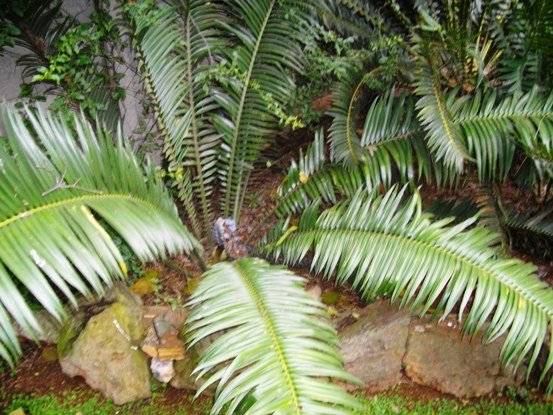Encephalartos villosus

Author: Ivan Lätti
Photographer: Ivan Lätti
Encephalartos villosus, commonly called the poor man’s cycad and in Afrikaans the stamlose broodboom (stemless bread tree or cycad), is a fast-growing dwarf cycad reaching 2,5 m in height. It grows solitary or forms clusters.
The stem is usually unbranched and subterranean, although above-ground stems of up to 40 cm may be found, reaching a diameter of 25 cm. The often woolly stem-top earned the plant the villosus name, a Latin word meaning softly hairy.
This species has the largest distribution range of all South African cycads, from East London in the Eastern Cape through KwaZulu-Natal to Swaziland and southern Mozambique.
The habitat is mainly high summer rainfall, subtropical, coastal forest, the plants thriving in shade. Although the plant population is decreasing, the habitat population is deemed of least concern early in the twenty first century.
The plant is common in cultivation and, being readily available, earned the name of poor man’s cycad from its comparatively low selling price (Pooley, 1998; www.cycadsociety.org; https://pza.sanbi.org; http://redlist.sanbi.org).

